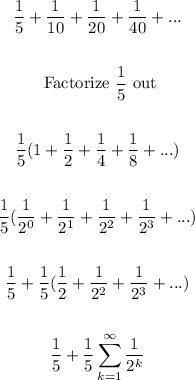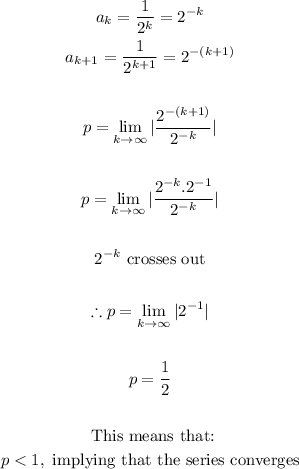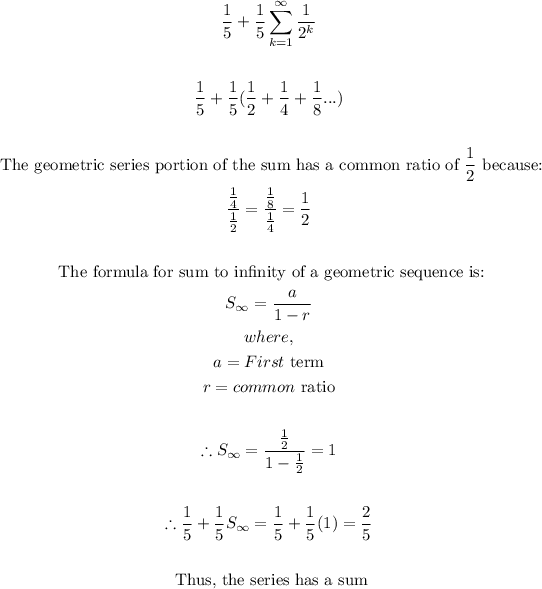Solution
- To begin, let us write the series in a general form:

- From the above, we get a geometric series. Thus, we can apply the Ratio test
- The ratio test theorem states that:

- Applying this theorem, we have:

- Now that we know that the series converges, and it is a geometric series, we can apply the sum to infinity formula of a geometric series to find whether it has a sum or not.
- This is done below:

Final Answer
The series converges and the series has a sum